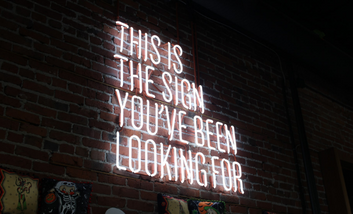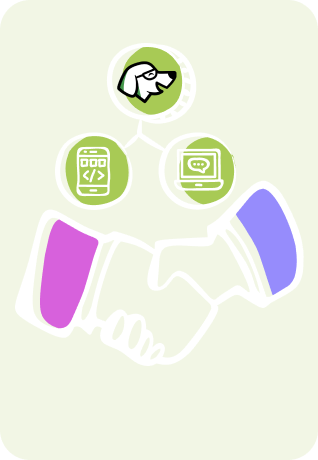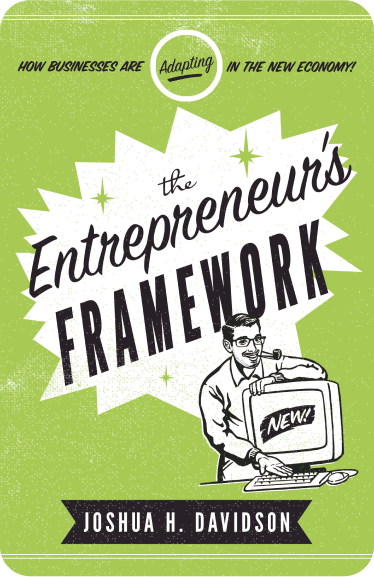Are you looking to keep up with all the latest news and trends in AI technology? You’re not alone. There is simply so much AI news that it can be hard to keep track of everything.
Artificial intelligence is emerging as one of the most influential technologies today, powering products from cars to home appliances – and transforming entire industries along the way.
However, even so, it has its detractors. Some people say it simply costs too much and uses too many resources to run. Legal battles and ethical issues have been popping up around it, and other people feel it may be a net negative for humanity, rather than a positive.
In this blog post, we’ll dive into some of the exciting developments and issues.
Whether you want to stay ahead of new innovations or simply keep your finger on the pulse of the rapidly evolving AI landscape, this blog post has you covered!
AI Technology Poses Risks to Child Safety Online
Pew research from 2020 shows that 80% of parents shared images of their children online.
While many people only think of child safety online in terms of family-oriented influencers who monetize regular content featuring their children, most parents are posting their children in the US.
The fact of the matter is, emerging AI technology can empower digital criminals and others to manipulate the images of children in disturbing ways.
“It’s kind of like ‘The Truman Show’ on the internet,” said Kodye Elyse, who has four million followers on TikTok and posts about her work as a cosmetic tattoo artist and her experiences as a single mother. “You never know who’s looking.”
The New York Times reports that there are numerous threats that posted children and their families face.
Kodye Elise even found that a manipulated picture of her son’s face (taken from a newscast at a sports game) had been stolen and was being utilized in unfamiliar images behind a paywall.
She also found that AI had been used to create de-aged photos of her young daughter to use as advertisements for a summer camp.
As well as invading the privacy of children and potentially doxxing them, sharing their image and other information makes them vulnerable to scammers.
There are scams featuring deepfake technology too. These can even mimic children’s voices to scam their parents. There is also the possibility that a stranger could learn a child’s name and address from a simple image search.
AI Makes an Ancient Scroll Readable for the First Time
A 21-year-old Computer Science student at the University of Nebraska-Lincoln, Luke Farritor, developed an AI algorithm that has been able to decipher characters on an ancient scroll.
This scroll, written in Herculaneum, the city which was also destroyed by the Pompeii eruption in 79 AD, has been unreadable for about 2000 years.
The algorithm Farritor developed detected Greek letters on several lines of the rolled-up papyrus. This included πορϕυρας (porphyras), which means ‘purple’.
Farritor used subtle, small-scale differences in surface texture to train his AI neural network effectively. It highlighted the important ink to make these discoveries.
Hundreds of scrolls were buried by Mount Vesuvius in October AD 79. This was when the historic eruption killed many and left Herculaneum under 20 meters of volcanic ash.
Early attempts to open the papyri broke them into pieces. These fragments have proven difficult to read for centuries.
The organizers of the Vesuvius Challenge, which rewards scholars who can accurately interpret these scrolls with cash prizes, announced that Farritor has won the ‘first letters’ prize of $40,000.
He won for accurately reading more than 10 characters in a 4-square-centimeter area of papyrus, using his AI tech.
Youssef Nader, a graduate student at the Free University of Berlin, has been awarded $10,000. He came in second place for his work.
AI Companies Influence The US Government
Politico reports that Open Philanthropy, an organization backed by Silicon Valley billionaires and tied to artificial intelligence firms, is funding the salaries of more than a dozen AI fellows.
They work in key congressional offices, across federal agencies, and at influential think tanks in the US. All of these pro-AI fellows are funded by Open Philanthropy.
Open Philanthropy is financed largely by billionaire Facebook co-founder and Asana CEO Dustin Moskovitz, as well as his wife Cari Tuna.
It is already involved in negotiations to influence how the US government regulates AI. Open Philanthropy has been able to accomplish this by acting through the little-known Horizon Institute for Public Service.
This is a nonprofit that Open Philanthropy created in 2022. This group is funding the salaries of tech fellows in key Senate offices, according to documents and interviews.
Current and former Horizon AI fellows with salaries funded by Open Philanthropy are now working:
- Directly with Senate Majority Leader Chuck Schumer
- With Senators. Martin Heinrich (D-N.M.), Mike Rounds (R-S.D.) and Todd Young (R-Ind.), and Sen. Richard Blumenthal (D-Conn.).
- The Department of Defense
- The Department of Homeland Security
- The State Department
- House Science Committee
- Senate Commerce Committee
- Key think tanks shaping AI policy, including the RAND Corporation and Georgetown University’s Center for Security and Emerging Technology.
In fact, In 2022, Open Philanthropy set aside nearly $3 million for all of these placements. This money ultimately came to fund the initial cohort of Horizon fellows.
Key AI News: US Escalates “Tech Cold War” with China

The Biden administration is reducing the types of semiconductors that American companies are able to sell to China, one of the world’s largest technology marketplaces.
They say this is the result of the desire to close some loopholes in already existing regulations.
On Tuesday, the US Commerce Department unveiled new rules. They further tighten intense export controls which were first introduced in October of last year.
In a statement, US Commerce Secretary Gina Raimondo said:
“Today’s updated rules will increase effectiveness of our controls and further shut off pathways to evade our restrictions. These controls maintain our clear focus on military applications and confront the threats to our national security posed by the PRC Government’s military-civil fusion strategy.
As we implement these restrictions, we will keep working to protect our national security by restricting access to critical technologies, vigilantly enforcing our rules, while minimizing any unintended impact on trade flows.”
CNN reports that advanced artificial intelligence chips, such as Nvidia’s H800 and A800 products, will be affected. This is according to a regulatory filing from Nvidia, whose stock has already dropped.
The regulations also expand export curbs beyond mainland China and Macao. These include 21 other countries that the United States maintains an arms embargo with. Amongst them are Iran and Russia.
The measures, which are meant to hamper these other countries’ abilities to make AI weapons using US tech, will take effect in 30 days.
In the Future, Could AI Take Your Meetings?
The BBC reports:
A ChatGPT-style AI assistant, developed by Microsoft and embedded into its office apps, will become available to all from 1 November, following trials.
Microsoft’s new 365 Copilot can summarise meetings held in Teams for people that can’t make them or choose not to attend.
This AI assistant can also complete a range of tasks quickly. This includes:
- Drafting emails
- Creating word documents
- Making spreadsheet graphs
- Creating PowerPoint presentations
Some think that this will leave businesses too reliant on AI, and potentially replace workers, leading to an increase in poverty and crime.
Outside of pessimistic speculation, this AI may actually break new rules meant to protect people from the potential downsides of AI in the EU and China.
Essentially, in the EU and China, it is illegal to have humans interact with AI without their knowledge.
While many AI firms feel that it is the responsibility of users to clarify whether they are using AI or not, the laws of the EU say that it is the responsibility of AI firms to make their products transparent.
Testing Out Copilot

BBC Technology Editor Zoe Kleinman tested out Copilot, and found that it can complete many tasks in seconds, but does have some limitations. It can’t make the subjective decisions that require human skill and understanding.
However, as it costs only $30 a month, it is likely that many companies will try to use it to replace workers in administration.
She says:
My first impression of Copilot is that it will be a useful tool, but also a formidably competitive colleague for those who do office work – especially within companies looking to make savings.
I watched it confidently summarise in a few seconds, a long chain of emails regarding a fictional product launch.
Others say that a potential risk is businesses becoming too dependent on this technology, which more or less puts them at the complete whims of Microsoft and opens up new potential security issues.
Sure, copilot only costs $30 a month now. However, it’s likely that over time the price will rise and policies regarding it will change.
What if those policies don’t favor your business and you are stuck with it because it’s already doing a lot of the office work for your company?
Final Thoughts on the Latest AI News
So much is happening globally with AI! This technology is already changing everything, from what we can do with technology to who is even working in and with the US government.
What will the world of work look like with AI? Governments are already grappling with the practical applications for their citizens, as well as what this technology means for the future of warfare.
While AI is shaping the future, it is also helping to illuminate the past by allowing us to make new anthropological discoveries.
While many people are skeptical of what this technology really offers, and think in the long run it will be used to do more harm than good, it is really impossible to know what exactly will come to pass.
What do you think? Comment below.
Since 2009, we have helped create 350+ next-generation apps for startups, Fortune 500s, growing businesses, and non-profits from around the globe. Think Partner, Not Agency.
Find us on social at #MakeItApp’n®

















